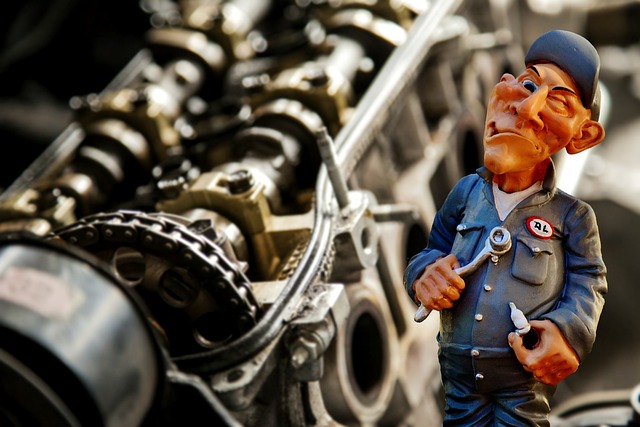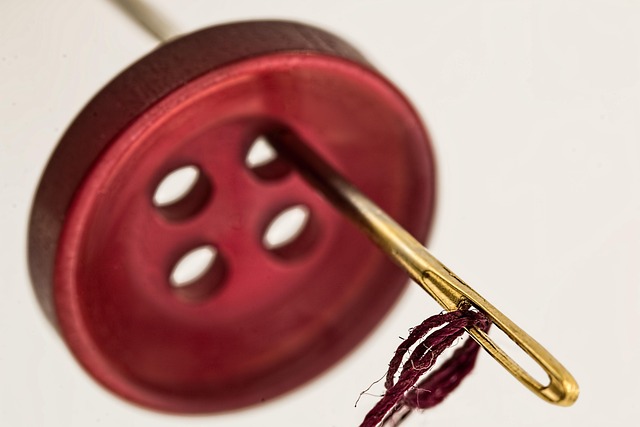Hot water cylinders require regular maintenance and prompt repair for issues like leaks, corrosion, and burst pipes. Common problems include worn seals/valves and mineral buildup. Costs vary for repairs, with parts or tank replacement needed. Regular flushing, expert advice, and understanding warranties aid in cost-effective decision-making. Proactive measures extend cylinder lifespan, saving on emergency repairs and replacements.
Hot water cylinder repairs can be a necessary expense for any homeowner. This comprehensive guide delves into the common issues affecting these appliances, focusing on leaks—a frequent problem with significant cost implications. We break down the repair process, detailing parts, labor, and total expenses. Additionally, learn about potential savings tips to navigate the costs of hot water cylinder maintenance efficiently.
- Understanding Common Hot Water Cylinder Issues
- What Causes Leaks and How Much Does Repair Cost?
- Parts Involved in Repairs and Their Prices
- Labor Costs for Replacement and Installation
- Total Repair Expenses and Potential Savings Tips
Understanding Common Hot Water Cylinder Issues

Hot water cylinders are essential appliances in any home or commercial space, and understanding common issues can help with timely hot water cylinder repair. Over time, these cylinders can develop problems such as leaks, corrosion, or even a burst pipe. Leaks often occur due to worn-out seals or valves, especially in older models. Corrosion is another frequent issue, caused by mineral buildup or poor installation, leading to reduced water heating efficiency and potential failures.
When it comes to emergency hot water cylinder repair services, having a reliable technician on call is crucial. Moreover, knowing how to identify the problem, whether it’s a simple seal replacement or a complex repair like repairing a burst hot water pipe, can save time and money. Additionally, understanding your hot water cylinder warranty can help you navigate repairs effectively, ensuring you’re covered for eligible costs.
What Causes Leaks and How Much Does Repair Cost?

Leaks in a hot water cylinder can arise from various factors, with the most common causes being corrosion and worn-out seals or gaskets. Over time, the cylinder’s exterior can corrode due to exposure to moisture and varying temperature conditions, leading to cracks or holes that cause leaks. Internally, sediment buildup and mineral deposits can erode the tank’s lining and damage seals, resulting in water leakage. A noisy hot water heater is often an early warning sign of these issues.
Repairing a leaking hot water cylinder involves replacing the affected parts, such as gaskets, valves, or even the entire cylinder if corrosion is severe. The cost of repair varies depending on the extent of damage and local labor rates. On average, fixing a noisy hot water heater can range from $200 to $500 for basic repairs, while preventing hot water cylinder failures through regular maintenance, like flushing and checking for corrosion, can significantly extend its lifespan and avoid costly replacements. Additionally, how to prevent hot water cylinder corrosion is a key aspect in minimizing repair needs and maintaining optimal performance.
Parts Involved in Repairs and Their Prices

When it comes to repairing a hot water cylinder, several key parts may be involved, each with its own cost implications. The first step in understanding the financial commitment is identifying the components that require attention. A common issue with hot water heaters is an inefficient or faulty heating element, which can range from $50 to $200 or more, depending on the type and quality. In some cases, the thermostat might be at fault, typically costing between $30 and $100 to replace.
Additionally, issues with the hot water cylinder’s pressure relief valve (PRV) or the cold water inlet can arise, necessitating parts replacement. PRVs usually cost around $20-$50, while cold water inlets might range from $10 to $30. For more complex repairs involving multiple components, labour costs may also factor into the overall expense. Comparing repair versus replace options is crucial, as expert advice on hot water cylinder repairs can guide homeowners in making informed decisions based on their specific circumstances and budget considerations.
Labor Costs for Replacement and Installation

When it comes to labor costs for replacing and installing a new hot water cylinder, several factors come into play. The initial expense can vary greatly depending on whether you’re opting for a gas or electric model, as well as the size and type of tank. On average, labor fees for installation range from $200 to $500, not including the cost of the new cylinder itself. This price includes disconnecting the old unit, removing it from the premises, installing the new cylinder, connecting gas lines (if applicable), and ensuring proper functionality.
Professional plumbers often charge higher rates for labor due to the specialized skills required for safe installation. To prevent unnecessary costs, regular maintenance can help extend the life of your hot water cylinder. Tips such as regularly checking for leaks, replacing the hot water filter to improve pressure, and taking measures to prevent corrosion can all contribute to delaying the need for a full replacement and installation process. Additionally, gas hot water cylinder maintenance tips, like ensuring proper ventilation and checking for gas leaks, are essential for safety and long-term performance.
Total Repair Expenses and Potential Savings Tips

When considering the total repair expenses for a hot water cylinder, it’s important to remember that costs can vary greatly depending on several factors, including the type and age of your system, the complexity of the issue, and whether professional services are required. Simple issues like a leaking valve or a faulty thermostat might only require a hot water cylinder repair kit (essential tools and parts) and some DIY skills, keeping expenses relatively low. However, more serious problems such as severe corrosion or a damaged tank could necessitate complete cylinder replacement, involving a step-by-step process that often requires professional expertise, significantly driving up costs.
To mitigate these expenses, proactive maintenance can be key. Regular inspections, flushing of the system to prevent sediment buildup, and timely repairs for minor issues can extend the life of your hot water cylinder. Additionally, keeping an emergency hot water cylinder repair service in mind for unforeseen breakdowns can save you from high urgent repair costs. By staying vigilant and taking a proactive approach, you can potentially avoid costly replacements and enjoy more efficient hot water system operation.
Repairing a hot water cylinder may seem like a costly endeavor, but understanding the common issues and their solutions can help you budget effectively. By knowing the parts involved, labor costs, and potential savings tips, you’re equipped to make informed decisions regarding hot water cylinder repairs. Remember that regular maintenance and early detection of leaks can significantly reduce repair expenses in the long run. Don’t let unexpected breakdowns disrupt your daily routine; be proactive with hot water cylinder repair and ensure a steady supply of hot water for years to come.
